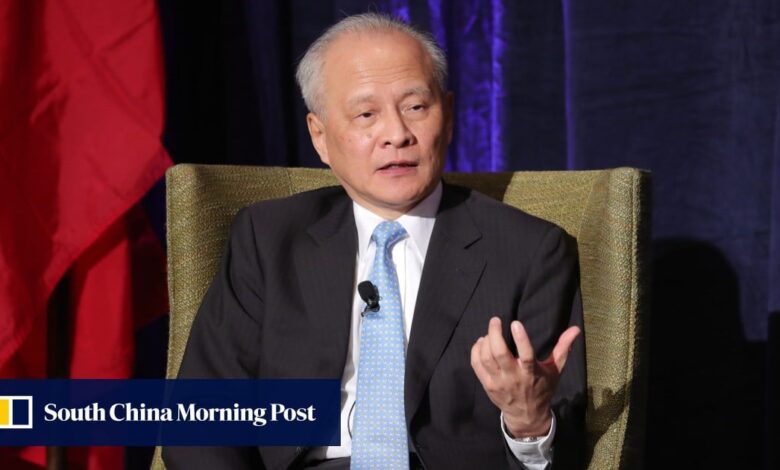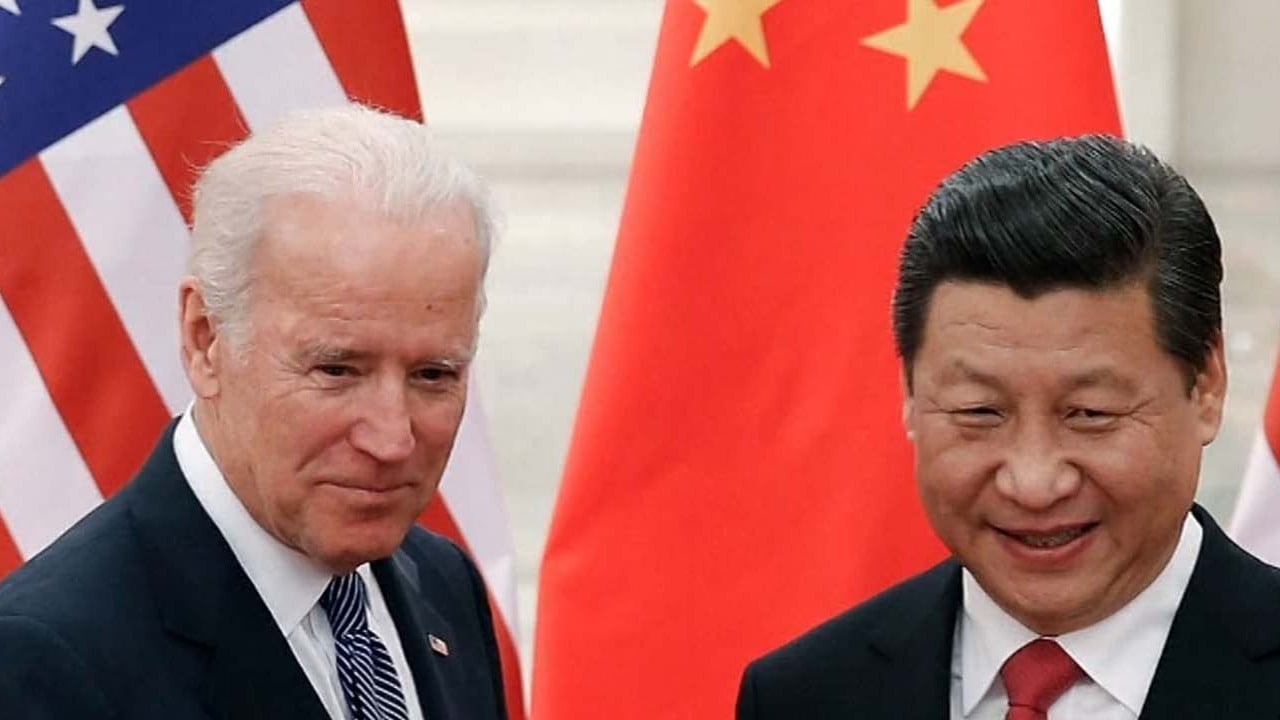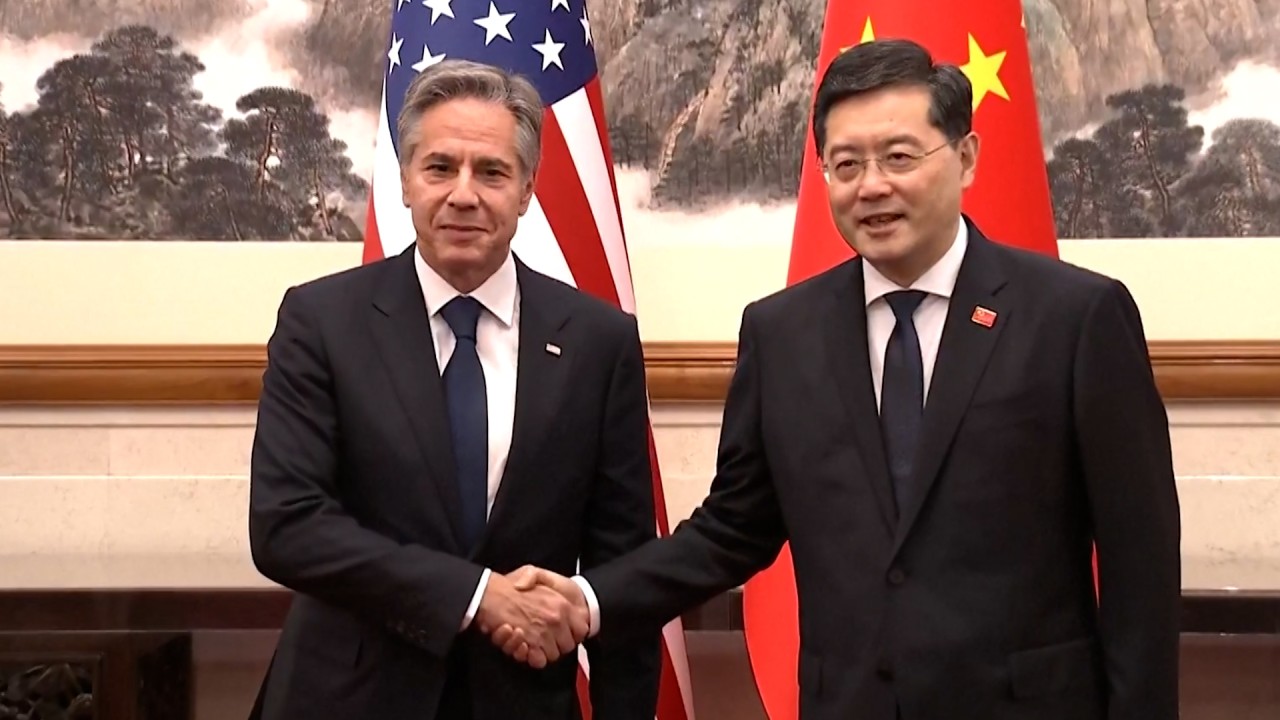Xiangshan forum: questions about Biden-Xi Bali pledge hang over US-China Apec summit prospects

[ad_1]
Giving his assessment at the Xiangshan defence forum in Beijing on Sunday, Cui hinted that February’s “spy balloon” incident was one of a number that impeded a commitment by the US and Chinese presidents to maintain open communication between their senior officials.
Joe Biden and Xi Jinping made the pledge on the sidelines of the Group of 20 summit in Bali, Indonesia in November but “not long after, some accidents happened and created a lot of interference”, Cui said.
“I am afraid there is still a question mark over whether the Bali consensus reached by the two heads of state has been fully and genuinely put into practice,” he said.
A suspected Chinese surveillance balloon passed over the United States before being shot down by a US jet fighter on February 4. In the aftermath, US Secretary of State Antony Blinken pushed back a planned visit by several months.
Pentagon to send defence officials to China’s Xiangshan security forum
Pentagon to send defence officials to China’s Xiangshan security forum
At the forum in Beijing, Cui said any meeting between Xi and Biden in San Francisco in November during the Asia-Pacific Economic Cooperation (Apec) summit must be based on the leaders’ agreement to expand interaction between senior officials.
“Of course, we have a lot of preparation to do to realise this meeting and make it successful,” he said, referring to China. “We need to move forward on the basis of the Bali consensus.”
This year’s Beijing Xiangshan Forum, hosted by the People’s Liberation Army’s Academy of Military Sciences, is widely seen as an attempt to revitalise in-person military dialogue, channels that were suspended after then US speaker Nancy Pelosi travelled to Taiwan in August last year in the face of strong opposition from Beijing.
Beijing sees Taiwan as a breakaway province to be united with mainland China, by force if necessary. Most countries, including the US, do not recognise Taiwan as an independent state, but many oppose any attempt to take the island by force.
China has assigned generals Zhang Youxia and He Weidong, vice-chairmen of the top military command, the Central Military Commission, to meet foreign delegates at the forum.
US lawmakers question Navy over bureaucratic delays for Taiwan weapons
US lawmakers question Navy over bureaucratic delays for Taiwan weapons
Cui said one expanding area of US-China cooperation was their response to the climate crisis.
“But the need to maintain areas of cooperation does not automatically hide or make disappear disagreements or various acute problems in bilateral ties,” he said.
“That can’t be done. What we need to do is to keep the bottom line of cooperation and dialogue.”
A bipartisan consensus on being tough on China has fomented in the US Congress, helped not only by Beijing’s military activities near Taiwan and in the South China Sea but also overwhelmingly negative views of China in the US, which make it politically unpalatable for lawmakers to appear dovish on China.
A Pew survey in March said 83 per cent of American adults had unfavourable views of China.
“When the forest becomes bigger, you will find all sorts of birds. There are all sorts of people and all sorts of views. That in itself is not strange,” Cui said about hawkish voices among American China watchers and politicians.
But, without naming names, he accused some “radical people” of holding anti-Chinese views with little understanding of the country, its people and culture.
Cui was ambassador to the US from 2013 to 2021. Although he retired from official posts, he is active as an adviser to Chinese delegations of international military conferences such as Xiangshan and Singapore’s Shangri-La Dialogue.
[ad_2]
Source link







